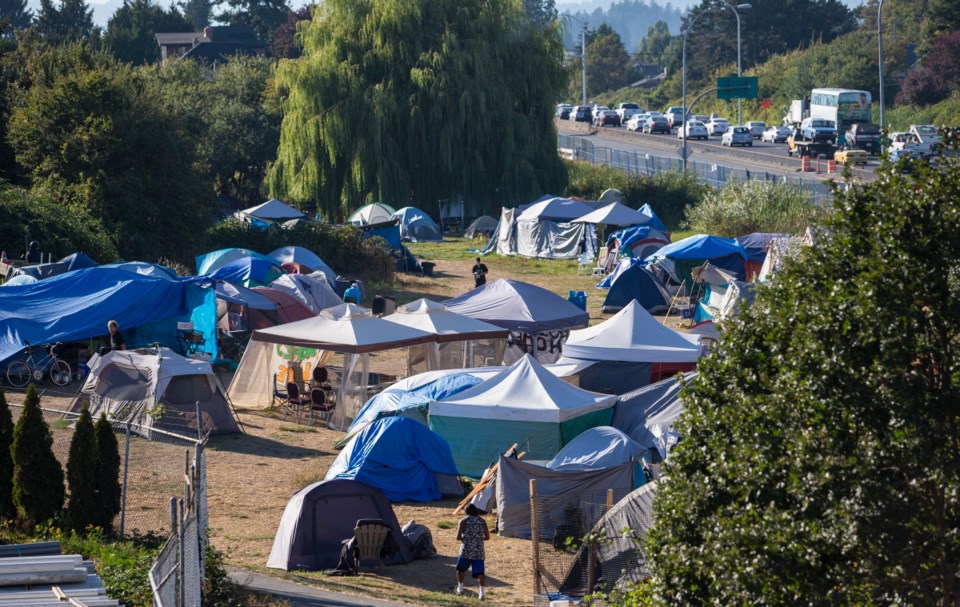There are many reasons to want a bold and comprehensive poverty-reduction strategy for B.C. to be announced this month, such as the fact that one in five children live in poverty, or that we have the greatest income inequality in the country.
A really ambitious poverty-action strategy might also be the best thing for the health of the people and the planet.
Poverty is associated with increased diabetes, obesity, heart/respiratory disease and other chronic conditions. We put the onus on people to change their lifestyles to cut down their carbon footprint and take care of their health, failing to see that as an almost impossible challenge if one can barely make ends meet.
If citizens have very little money to spend on food, they are more likely to eat affordable, cheaply sourced, highly processed food laden with low-cost, unhealthy fats and refined sugars. Hence they are much more likely to develop related chronic diseases. Eating healthy, environmentally sustainable produce is expensive.
The CEO of Community Food Centres lauds the new Canada Food Guide, which promotes shifting toward a less carbon-intensive, plant-based, low-meat diet. This is good for the planet, but nearly 13 per cent of Canadians cannot afford to buy that kind of food. Further, there is evidence that better social supports, such as a basic income, could promote more local and sustainable farming by protecting farmers against market fluctuations and climate-change impacts.
Most agree we should drive less and consume less energy, use an electric vehicle or transit, and live in energy-efficient houses. But an electric car is still expensive at a time when almost half of Canadians are living paycheque to paycheque. Similarly for transit: Many people trapped in working poverty hold down more than one job to get by.
As housing costs rise, people are forced to live farther and farther from expensive urban centres where employment and transit are most available. When commutes are long and transit is slow, people have little choice but to spout carbon dioxide into the air for one hour to and from work. And the long commutes can cause stress, depression and even debilitating mental strain.
When people are struggling to get by, they are unlikely to invest in more energy-efficient or alternative-energy technology. Older, more rundown houses are affordable for people living on a small income; such housing is often expensive to heat, making life difficult for the people living in them, and for the planet. B.C.’s investment in retrofitting social housing is a welcome change.
All people need stable, well-paying employment. Workers in extractive industries are hit hard by the boom-bust cycle to which such industries are subject, resulting in pervasive financial insecurity.
In fact, there is a growing push within environmental movements to support a just transition from a fossil fuel-based economy to one based on renewable energy. According to estimates by Alberta’s Iron and Earth, it would take only about $8 million to fully retrain 1,000 oilsands workers and employ them installing 100 solar large arrays. Imagine a Canada in which we reinvested the $4.5 billion paid for expanding the Trans Mountain pipeline into renewable-energy job creation instead. In California, climate policies created more than 500,000 green jobs.
Indigenous communities are often on the frontlines of disruptive extractive industries, subjected to chemical, noise and structural pollution. When driven away from their homes by these and other harms — such as the toxic residue from the residential-school system — Indigenous persons move to urban centres. There they are twice as likely to be poor as non-Indigenous people, live in substandard housing or even be homeless — and be subjected to more pollution.
The resultant harms are intergenerational. Mothers exposed to higher levels of air pollution are more likely to have children with impaired neurological development and behavioural problems. All these effects are compounded by the other stressors of poverty that make it difficult to for children to excel in school, further diminishing their chances to break the cycle of poverty.
However, it is critical to remember that communities must be true partners in decision-making; poverty-reduction processes must have meaningful consultation and clear community consent.
Poverty, health, and care of our planet are inextricably linked. A poverty-reduction strategy based on this could lift people out of poverty, empower them toward environmental stewardship, inspire the rest of the country and give hope to the world.
Dr. Amy Lubik and Dr. Warren Bell are volunteers with Canadian Association of Physicians for the Environment — B.C.



